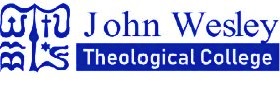The importance of reasoning in the financing of churches from public funds or the case of the Hungarian Evangelical Fellowship with the legislator (2011-2019)
DOI:
https://doi.org/10.59531/ots.2023.1.1.29-47Keywords:
liberal democracy, illiberal democracy, freedom of religion, neutrality of state, secularization, public funding of churches, acquired rightsAbstract
The following analysis is about a unique, out-dragged, henceforth unsolved legal bargaining between small churches and the parliament in Hungary. Is the majority principle based on firm enough grounds so that to differentiate among religions? Why should the ruling majority be required to take into consideration religious groups that are marginal, or that they dislike, on an equality basis while distributing public funds?
This paper suggests that the conceptual critique of the new deliberately differentiating, illiberal Church law of 2011 is that it allows unhinged exclusive and arbitrary decision-making for the legislation. Although majority principle should be the essence of democracy, its unconstrained version creates such anomalies in the democratic institutions which could well be survived but would alter the system into a non-democratic regime. First generation fundamental rights are therefore to be protected not by the democratic institutions even in a democracy but by the rule of law (liberalism).
References
Annicchino, P. (2016): A Transatlantic Partnership for International Religious Freedom? The United States, Europe, and the Challenge of Religious Persecution. Oxford Journal of Law and Religion, 5, 280-297.
doi: https://doi.org/10.1093/ojlr/rww005: footnote6.
Audard, C. (2011). Rawls and Habermas on the Place of Religion in the Political Domain. – In: Finlayson, G.J., Freyenhagen F. (eds.) Habermas and Rawls. Routledge, London. doi: https://doi.org/10.4324/9780203723869
Beiner, R. (2012): Taylor, Rawls, and Secularism. This essay was written for “Charles Taylor at 80,” a conference held in Montreal on March 29th-31st.
https://www.academia.edu/12526434/Taylor_Rawls_and_Secularism
Fazekas, C. (2008): Egyházak, egyházpolitika és politikai eszmék az Osztrák-Magyar Monarchiában. (Churches, church politics and political thinking in the Austria-Hungary Monarchy). – In: Working Papers 4. Miskolci Egyetem Politikatudományi Intézet.
Henrard K. (2016) The European Court of Human Rights, Ethnic and Religious Minorities and the Two Dimensions of the Right to Equal Treatment: Jurisprudence at Different Speeds?, Nordic Journal of Human Rights, 34:3, 157-177, doi: 10.1080/18918131.2016.1225656
Nussbaum M. C. (2012): The New Religious Intolerance Overcoming the Politics of Fear in an Anxious Age, Cambridge MA, The Belknap Press of Harvard University Press, pp. 285), also reviewed by: Lena Larsen (2014) The New Religious Intolerance. Overcoming the Politics of Fear in an Anxious Age, Nordic Journal of Human Rights, 32:4, pp. 406-408.
doi 10.1080/18918131.2015.957474
Plaintiff S. C. v. Randy Bartelt et al., (2016). Defendants. United States District Court, D. Nebraska. 178 F. Supp.3d 819.
Stepan, A. (2010): The Multiple Secularisms of Modern Democratic and Non-Democratic Regimes (2010). APSA 2010 Annual Meeting Paper, Available at SSRN: https://ssrn.com/abstract=1643701
Downloads
Published
Versions
- 2024-10-22 (3)
- 2023-05-13 (2)
- 2023-05-08 (1)
How to Cite
Issue
Section
License

This work is licensed under a Creative Commons Attribution-NonCommercial-NoDerivatives 4.0 International License.
OTS articles are subject to the Creative Commons Attribution-NonCommercial-NoDerivates 4.0 International Licenses Copyright Terms.





